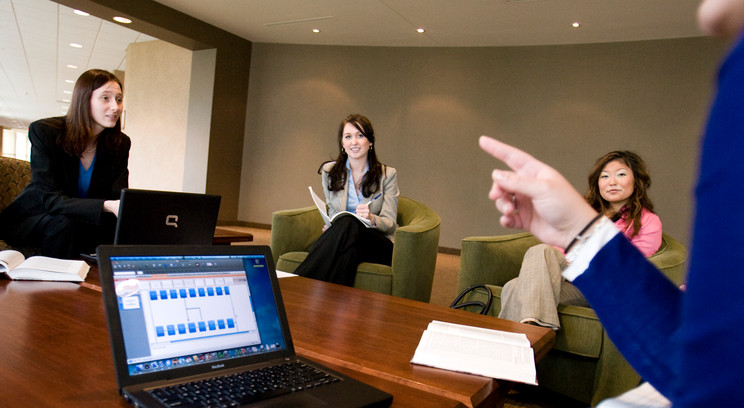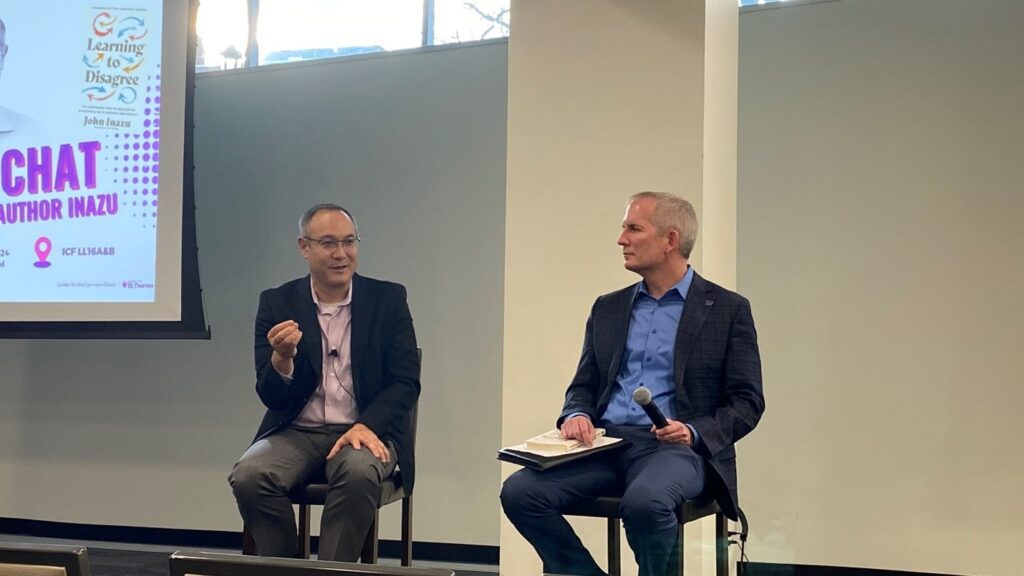"Lean in." Perhaps it's just a buzzword that will fade with time or maybe it's the next phase of a movement that has been and will continue to change workplaces, inspiring women and men to go after their dreams and “lean in” to their passions. Recently, professor Teresa Rothausen-Vange, Ph.D. led a session on the Sheryl Sandberg’s best-selling book, Lean In.
The session brought together students of the Full-time UST MBA program and staff to have a candid conversation about key topics that impact a woman’s role in the workplace. From gender differences in pay and how actions are perceived by colleagues to balancing the role of working mom, small groups shared their own stories and thoughts on discussion questions and brainstormed ways to address these issues moving forward, including:
- Start the discussion. Talking about these issues is the first step to changing the workplace and truly making a difference. As Professor Rothausen-Vange pointed out, being able to see is the first step in breaking down barriers in the gendered systems around us that can keep women from leaning in fully to their passions at work and men from leaning in at home.
- Ask questions. Change requires that we question the status quo. Questions force those in charge to look at a situation differently and consider alternatives. Professor Rothausen-Vange noted that some versions of political correctness can make people afraid to point out what they see or ask why things are the way they are.
- Support the women in your life, both at home and in the workplace. We all need the support of others to be successful. Mentors and sponsors of young women will be more effective if they understand how gender impacts women at work. For example, mentors, whether they be in leadership positions or peers, can encourage women to “lean in” to opportunities to engage their passions and champion changes in the workplace that disproportionately impact women.
On a related note, the Opus College of Business also hosted a Diversity Insights breakfast on gender, power and leadership. The speaker, Katherine M. Curran, Ph.D., offered tools to understand the masculine and feminine power systems at work. She discussed what happens to women when they have to function within the masculine work culture, and strategies for addressing these differences that can help female leaders succeed. The event concluded with a discussion of how female and male leaders can begin to evolve their culture at work, rather than just conform to it.
These discussions are especially timely given a recent apology from Dean Nitin Nohria of Harvard Business School for its often unfair treatment of female students and faculty. Nohria noted, “…there were times when women at Harvard felt ‘disrespected, left out, and unloved by the school. I’m sorry on behalf of the business school.’”
The University of St. Thomas takes great pride in its above average representation of women in both business classrooms and leadership roles among faculty and staff. Our values-centered approach to business education ensures that this remains a priority throughout the Opus College of Business.







